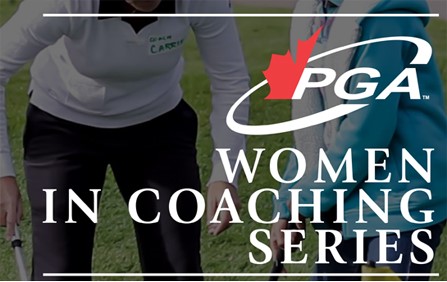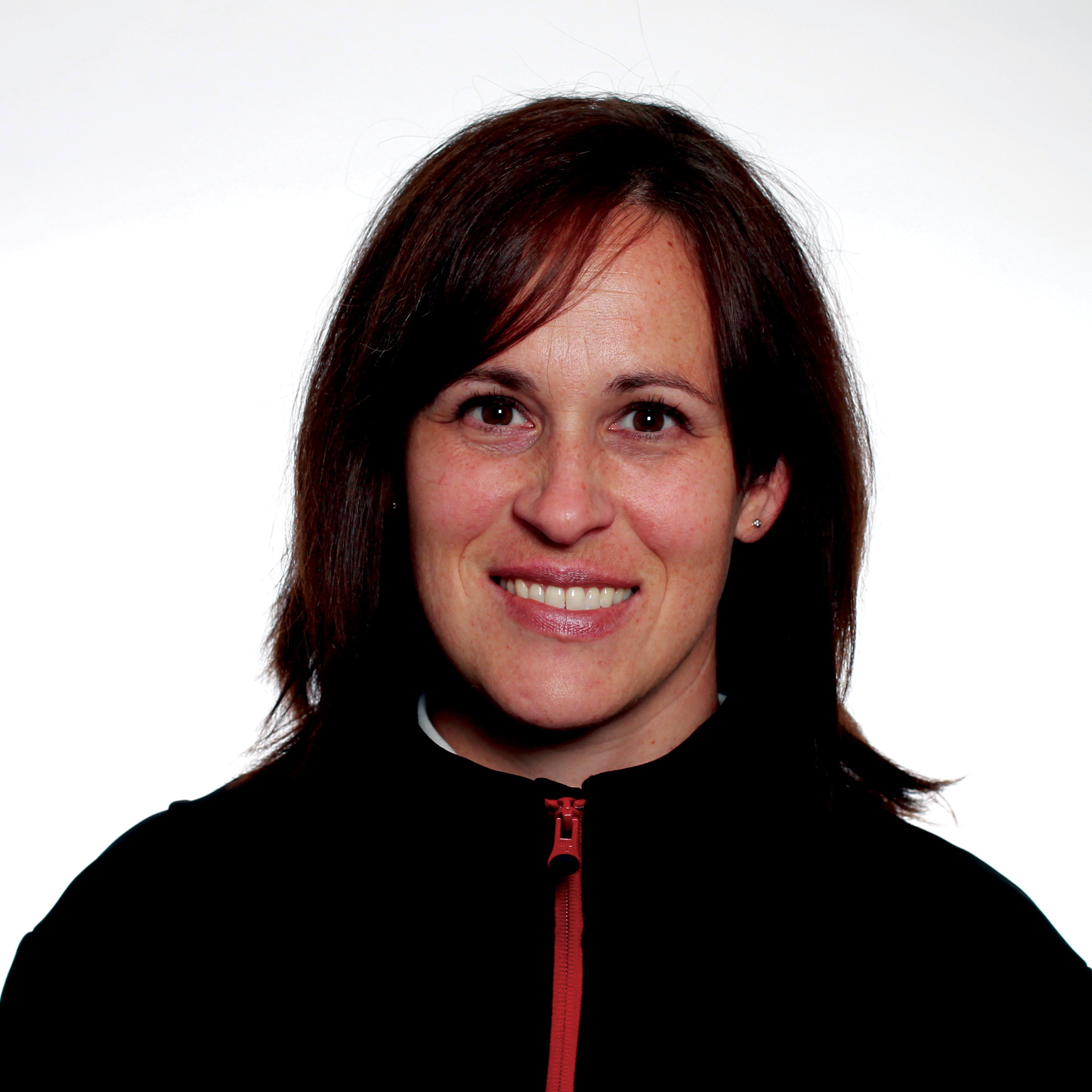
Women in Coaching Series - Isabelle Cayer Q&A
What is your role at the Coaching Association of Canada (CAC)?
I am a Senior Coaching Consultant and work with 11 sports on the planning, development and implementation of NCCP programs. I am also the Manager of the Women in Coaching Program.
The Women in Coaching program currently consists of the following initiatives:
1. Advanced Coaching Diploma scholarship grants for female coaches completing the highest level of formal coach education in Canada – the Advanced Coaching Diploma offered through a partnership between CAC and the Canadian Sport Institutes and Centres;
2. Canadian Journal for Women in Coaching – the journal provides greater reach to the female coaching community and articles reflect topics pertinent to female coaches and leadership development;
3. Annual National Coach workshop is a professional development initiative for the development of leadership competencies, networking and support systems for national level female coaches, nominated by their NSOs.
4. Canada Games Apprenticeship Program - we work in partnership with the Canada Games Council, and the Provinces/Territories to provide professional development workshops for female coaches selected to attend the Canada Games as an apprentice coach. The program aims to prepare coaches to fill the role of head coach or assistant coach in future Games.
5. National Apprenticeship program, a three year program which supports female coaches aspiring to become future national level coaches, with the support of the National Sport Organization. The NSO provides access to higher level competition environments, and the coach works with mentors, builds yearly learning plans for the development of personal and professional coaching competencies to enhance their capacity to fill coaching and leadership positions within the Canadian Sport System.
All of our programs aim to support organizations in providing opportunities for female coach development; as well as assisting coaches directly in their development; and providing contacts and opportunities for growth and eventual success, through networks, mentors and support systems. It has always been our hope that the profession of coaching be viable and that coaches can be afforded professional working conditions and long-term support.
 Why is the movement to have more female coaches important?
Why is the movement to have more female coaches important? Female participation in sport has increased steadily over the years but female coaching numbers remain low. Female athletes have had tremendous success at the most current Olympic Games representing over 50% of the medal haul. The athlete to coach transition at the national level is significantly lower with less than 20% female coach representation at the CIS and National/Olympic level. With so many women having a successful high performance competitive experience, the fact that so few enter coaching means there is a huge loss of knowledge and potential coaching expertise for any sport. We feel that female coaches can greatly contribute to the development of athletes in the Canadian Sport System and be role models for the next generation of athletes and coaches. Female coaches can compliment a male coaching staff, be a role model and mentor for young athletes, as well as provide a holistic approach to sport participation.
In addition to increasing the number of women coaches, we should examine our current models of coaching. Accepted ideas about leadership are changing. The traditional view of leadership was founded on male-oriented values of rationality (everything must be based on reason), competition (only the strong survive), and independence (every man for himself). These assumptions have shaped the culture of many of our organizations, including sport. When we simply try to fit women into this existing leadership (coaching) model, they often are isolated, receive little support, have limited opportunities, and do not stay around, thereby perpetuating the prevailing thinking that women "cannot take the pressure."
We need to look at sport and coaching differently. We need to ask some hard questions and then develop models of coaching that can accommodate both men and women.
In addition to our current program initiatives, we ensure we feature female coaches and coach developers through our monthly e-newsletter, and provide equal representation of female and male coaches and leaders presenting at our annual Sport Leadership Conference. We take every opportunity we have to feature a story or milestone of a female coach. An entire section of the CAC website is dedicated to Women in Coaching. We partner with several organizations that also promote the development of female coaches and leaders in sport, such as the Canada Games Council, CAAWS and Coaches of Canada as well as a number of NSOs, provinces and territories. We provide NSOs with the opportunity to access funding specifically for the development of female coaches and our coaching consultant team at the CAC also provides guidance to NSOS, PSOs and other partners on the funding opportunities, initiatives and support available to them.
What opportunities/resources are available for female coaches to network or develop themselves further?
There are a number of resources and opportunities available for female coaches, as noted above. In addition to our own programs, we promote and partner with CAAWS, an organization dedicated to the advancement of women in sport. CAAWS offers a number of Women and Leadership resources, workshops and programs and these are offered across Canada. In addition, through our partnerships with Sport Canada, the provinces/territories and NSOs, we encourage and support the opportunity to provide female only workshops.
How has the culture of female coaching changed in Canada since you joined the CAC?
I believe the culture is changing because there is more awareness from our partners (Sport Canada, NSOs and P/Ts) of the need to have female coaches involved in their sport programs at every level. More and different NSOs (and those from traditionally male dominant sports as well) have contacted us to assist in their female development initiatives. We also have a more deliberate and targeted approach to selecting sports with a desire to transition female athletes into coaching and further develop current female coaches; as well as develop partnerships with organizations that employ coaches or can support the development and employment of female coaches (Sport Canada, CIS, Own the Podium, Provincial Coaching Organizations, Provinces/Territories). These sports have identified this need through their strategic plans and identification of female coaches and development program plans. The professional development experiences that we have provided to female coaches has enabled them to stay involved in coaching (70-80% remain involved in coaching) and this has continued further commitment to engagement and development of local programs. We will continue to build relationships, partnerships and programs to support coaches and organizations in their pursuit of developing female coaches.
What kind of impact can the PGA of Canada’s Women in Coaching series have on the culture of coaching and female golfers?
If the PGA of Canada continues to focus on the long-term development of women coaches and a targeted approach to the transition of female athletes into coaching, this can have a huge impact on the future of golf and female participation as athletes and coaches. The Women in Coaching Series will bring awareness of the identified need by the PGA of Canada to develop female coaches. If there is a commitment to increase the number and success of female coaches in the sport of golf, organizations like the CAC and CAAWS can help to support initiatives for females. If golf participants can see a clear pathway to coaching, and the support of the national sport body and in turn golf clubs, then this will prove to be an exciting opportunity for female development and success in Canada
Isabelle Cayer Senior Coaching Consultant, Women in Coaching with Coaching Association of Canada
Isabelle is a graduate of the University of Ottawa with a social sciences degree and specialization in politics. A former competitive athlete, she became a NCCP certified coach and worked with athletes for over ten years in the sport of figure skating. She has worked at the national level of Canadian sport for over 12 years managing national coaching programs and spearheading LTAD. Her most challenging and rewarding job is raising her two daughters who are both involved in sports. Her latest coaching role is that of community soccer coach - volunteering to help the local club program to operate. Career highlight: Working behind the scenes with the media at the 2010 Olympic Winter Games.